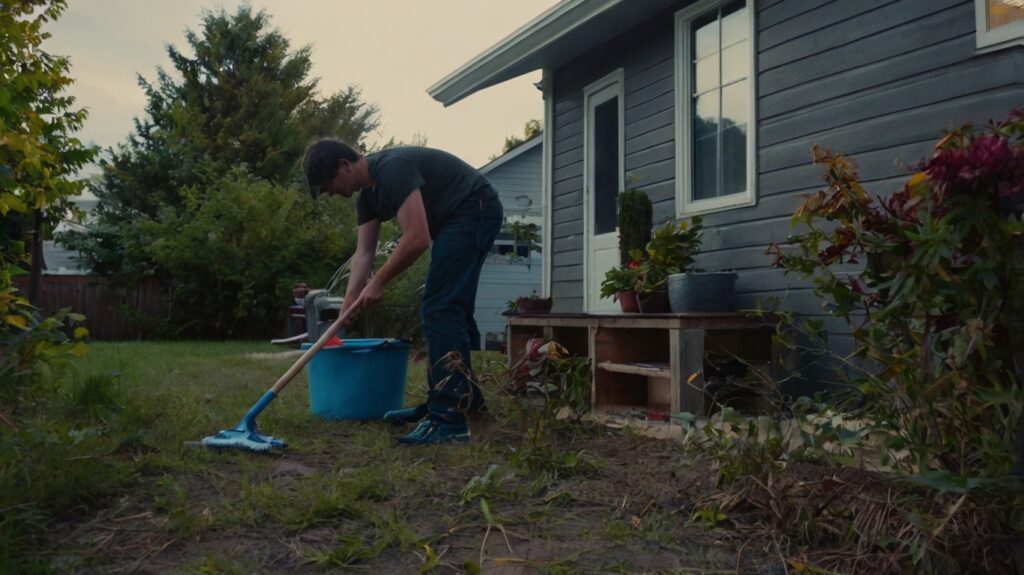Housekeeping for Camp/Rig Crew Accommodation and Catering Services: Ensuring a Comfortable Stay
In the demanding environments of remote camps and oil rig sites, providing a clean and well-maintained accommodation is crucial to maintaining the well-being, safety, and morale of the crew. Housekeeping and catering services for camp and rig accommodations play a pivotal role in achieving this. These services are designed to offer not just cleanliness, but also comfort, nourishment, and relaxation in challenging and often isolated conditions. Let’s explore the key elements of housekeeping and catering for camp or rig crew accommodation and how they contribute to the overall operation.

Importance of Housekeeping in Remote Camps and Rigs






Housekeeping for rig and camp crews is more than just cleaning rooms; it encompasses a variety of services aimed at maintaining a healthy, safe, and welcoming environment. Given the long working hours, harsh climates, and physically demanding tasks, providing well-kept living spaces is essential for the crew’s mental and physical well-being.
Some of the key responsibilities of housekeeping in such setups include:
- Room Cleaning and Maintenance:
Regular cleaning of the crew’s sleeping quarters, common areas, and recreational spaces is necessary to ensure cleanliness and prevent the spread of germs or diseases. Daily sweeping, mopping, and disinfecting surfaces in bedrooms, bathrooms, and communal areas, such as lounges and dining halls, are part of the routine. - Linen and Laundry Services:
Providing fresh bed linens, towels, and clean work clothing is essential, particularly in environments where workers often sweat, handle hazardous materials, or are exposed to dirt and grime. Laundry services are usually run onsite to ensure that crew members have access to clean clothing regularly. - Waste Management:
Proper waste disposal and recycling practices are key in maintaining hygiene and preventing the attraction of pests. Housekeeping staff must ensure waste is collected, segregated, and disposed of in a timely and environmentally friendly manner. - Health and Safety:
Keeping rooms and common areas free from hazards like spills, clutter, and debris is critical to ensuring the safety of the crew. A well-maintained environment minimizes the risk of accidents, which is particularly important in a high-risk workplace like a rig or remote camp. - Pest Control:
In remote locations, pest infestations can be a significant issue. Housekeeping teams need to implement preventative measures such as regular inspections, sealing entry points, and maintaining high standards of cleanliness to prevent pests from becoming a problem.
Catering Services: Fueling the Crew for Performance
Proper nutrition is just as important as a clean living environment for camp and rig workers. Catering services provide the essential function of delivering nutritious, balanced meals that sustain the crew during their physically demanding work. With limited access to restaurants or grocery stores, catering services are the primary source of food and beverages for these workers.

Challenges in Remote Housekeeping and Catering
Running housekeeping and catering services in remote locations presents unique challenges. Supply chain logistics, for instance, can be difficult as camps and rigs are often located in isolated areas. Securing fresh food, cleaning supplies, and linens regularly requires careful planning and coordination with suppliers. Additionally, the workforce must be well-trained to operate in potentially hazardous conditions, including extreme weather and confined spaces.
Another challenge is maintaining high levels of morale among both the crew and the service staff. Keeping a positive attitude and maintaining service standards, even in tough conditions, is key to ensuring the overall wellbeing of the workforce.
Best Practices for Effective Camp and Rig Housekeeping and Catering
To ensure smooth operation, here are some best practices to follow for housekeeping and catering services in camp and rig accommodations:
- Scheduled Maintenance and Deep Cleaning: In addition to daily cleaning routines, deep cleaning and maintenance should be scheduled regularly to maintain hygiene and prevent long-term damage to the facilities.
- Clear Communication with Crew: Housekeeping and catering staff should have open lines of communication with the crew to understand their preferences, feedback, and special requests.
- Health and Safety Training: Staff involved in housekeeping and catering should receive regular health and safety training to ensure they can handle the challenges posed by remote and hazardous working environments.
- Use of Technology: Leveraging technology for inventory management, meal planning, and scheduling cleaning tasks can improve efficiency and reduce waste.
- Flexibility and Adaptability: The ability to adapt to changing conditions, including supply chain delays or fluctuating crew sizes, ensures the continued smooth operation of the camp.
Conclusion
Housekeeping and catering services are vital to the success of camp and rig operations. They ensure that the crew has a clean, comfortable place to live and work, as well as nutritious meals to fuel their energy. By providing a safe and hygienic environment, these services contribute to the productivity and well-being of the crew, making them an integral part of any camp or rig operation.